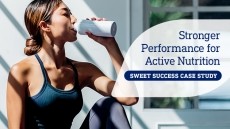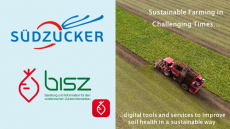Food firms restrict advertising to kids
focus their advertising to children under 12 on better-for-you
products, or to refrain from advertising to that age group
altogether.
The much-anticipated announcement comes in response to mounting pressure on food companies as a result of rising childhood obesity rates. In 2005, the US Federal Trade Commission (FTC) had asked industry to self-regulate its food advertising in light of these growing concerns. Faced with the threat of new regulations if they did not implement voluntary measures, eleven of the nation's major food and beverage firms yesterday announced new advertising commitments. The pledges, which were announced at a forum held by FTC and the Department of Health and Human Services (HHS), came from Cadbury Adams, Campbell Soup, Coca-Cola, General Mills, Hershey, Kellogg, Kraft Foods, Mars, McDonald's, PepsiCo and Unilever. Together, these companies accounted for an estimated two-thirds of children's food and beverage television advertisements in 2004. Last year, the firms had already launched an initiative under the Council of Better Business Bureaus (CBBB) - the Children's Food and Beverage Advertising Initiative - which committed them to devote at least half of their kids' advertising to promote healthier products, good nutrition and healthy lifestyles. According to CBBB president and CEO Steven Cole, yesterday's commitments "significantly exceed the initiative's baseline requirements". Speaking at the at the FTC/HHS forum, director of the initiative Elaine Kolish said: "collectively these pledges will improve the mix of foods advertised to children under 12 and reduce the number of food advertisements run by participating companies". "For example, these commitments effectively limit participating companies' advertising of snack foods and other food products to those that meet new or existing better-for-you nutrition criteria, and limit the advertising of cereals to those with 12 or fewer grams of sugar per serving." Specific commitments are as follows: PepsiCo said that by January 2008 its advertising will be only for products that meet the company's existing Smart Spot nutrition criteria, which are based on FDA and the National Academy of Sciences guidelines, or provide other functional benefits based on consensus science. Under the terms of its pledge, the only products PepsiCo will advertise to children under 12 are Baked Cheetos, a reduced-fat snack, and Gatorade. It will advertise Gatorade only in association with the promotion of children engaging in sports or other "vigorous" activity. General Mills' pledge provides that any product advertised to children under 12 must meet its nutrition guidelines for Health Dietary Choices, which the firm says are based on FDA standards for healthy foods, and the US Dietary Guideline recommendations. The guidelines include limits on calories, fat, sodium and trans fat. In addition, General Mills said it will no longer advertise to children foods containing more than 12 grams of sugar per serving. All products will meet these requirements by the end of 2008, or they will no longer be advertised to children under 12. Cadbury said the only product it currently advertises to children under 12 is Bubblicious. By March 2008 the firm said it will either no longer advertise Bubblicious to this age group, or will devote at least 50 percent of such advertising to a product that offers a healthier dietary option under the initiative's healthier food criteria. Unilever has adopted a new Eat Smart/Drink Smart Logo program that is based on US Dietary Guidelines and International Dietary Guidelines. As of June, only products that qualify for the logo are included in advertising that is primarily directed to children ages 6-12, said the firm. Currently, the only Unilever brands that are featured in advertising primarily directed to children ages 6-12 are Skippy Peanut Butter (via Web advertising) and Popsicle products that meet the Logo criteria for sugar content and contain less than 100 calories. Kellogg, which was the first to announce widespread nutritional standards last month, reconfirmed this commitment in its pledge. The standards include limits on calories, fat and sodium, as well as a 12 gram-per-serving sugar limitation, that are derived from FDA and Institute of Medicine (IOM) standards. The application of the company's nutrient criteria affects nearly 50 percent of Kellogg's products, including cereals, currently marketed to children worldwide. By the end of 2008, the company will either reformulate products to meet its criteria or it will stop advertising them to children 6-11. Kraft said it advertises to children only products to children that meet its Sensible Solution nutrition criteria, based on FDA standards and US Dietary Guideline recommendations. The firm said it will continue this policy under its pledge. These criteria contain, by product category, calorie and nutrient requirements and restrictions. For example, all of the cereals that it advertises to children have less than 12 grams of sugar and include either whole grains or a good source of fiber. Coca-Cola, Hershey and Mars said they are continuing their policies of not advertising to children under 12. Mars said the nutrition standards it uses for its line of better-for you-snack products are designed to be consistent with the US Dietary Guidelines and fortified with nutrients that IOM has identified as nutritional shortfalls in children's diets. Campbell said all of its advertising primarily directed to children under 12 will be for better-for-you foods, such as lower sodium soups and other products consistent with US Dietary Guideline recommendations. McDonald's said all advertising primarily directed to children under 12 will be for meals that meet specified calorie, fat, saturated fat and sugar limitations consistent with the Dietary Guidelines for Americans 2005 and other government standards. In addition, those firms that will continue advertise to children have agreed to restrict advertising using third-party licensed characters to products that meet better-for-you criteria, and to Websites promoting healthy lifestyles. In particular, Mars pledged not to use third-party licensed characters in any of its advertising primarily directed to children under 12. General Mills said it will use licensed characters on packaging for a new line of frozen vegetable products. Kellogg's limitations on the use of licensed characters include packaging as well as advertising. "Several companies already have implemented the internal nutrition guidelines and standards reflected in their pledges. All companies will implement their pledges by the end of 2008" said C. Lee Peeler, CBBB executive vice president, National Advertising, and president and CEO, National Advertising Review Council. "The goal of the initiative is to engage as many advertisers as possible to make a significant, collective impact in shifting the mix of products advertised to children. Today's announcement represents a beginning, not an end," he added. "The market for healthier products is increasingly competitive and we are seeing more and more companies move to reformulate or create new products in response to growing consumer demand. We expect to see these commitments continue to evolve as we gain experience with the program, and we hope the number of participating companies will increase." The BBB will monitor and publicly report on the companies' compliance with their pledges.





















